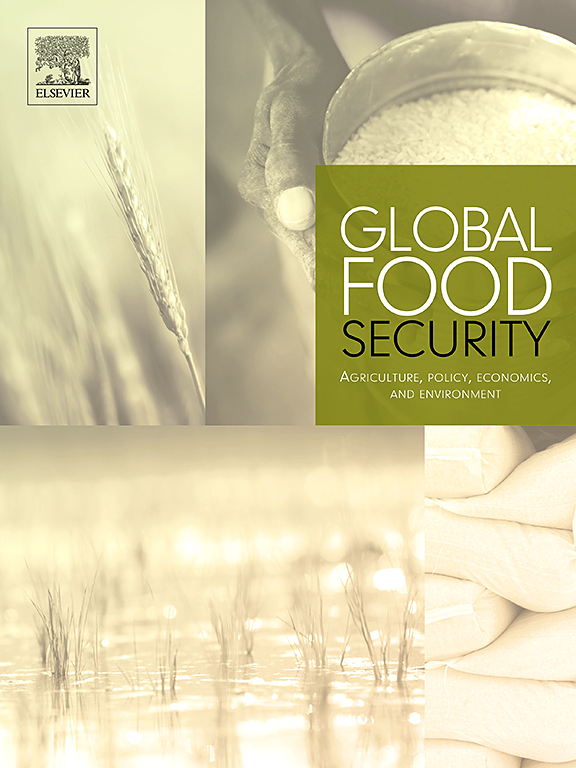How does market power affect the resilience of food supply?
Abstract
Food system shocks are mediated through value chains and underlying market structures, characterised by elements of power. Power imbalances are assumed to be detrimental to food security and to economic welfare, but the links between market power and food system resilience have not been extensively explored. This paper considers how shocks are potentially mitigated or amplified by the increasing consolidation of market power in globally interconnected food supply chains. We use UK examples to highlight evolving power-resilience dynamics and challenges from the perspectives of supply chain actors and regulators. We find that the impact of market power on the resilience of food supply is mixed. Low functional diversity levels, inflexible contracts and homogenous processes may increase supply chain vulnerability. A degree of power in terms of financial capacity, robust logistics and cooperation can enable firms to better mitigate shock impacts. Episodic crises appear to highlight the value of cooperation and of supply chain redundancy or slack, rather than the efficiency of perfect competition. This suggests a more nuanced perspective on market power than the largely detrimental perception implied by dominant economic theory. The discussion of the role of power in the food system should also consider social and environmental accountabilities of dominant food system actors, and whether these are sufficiently considered by existing regulatory structures.

 求助内容:
求助内容: 应助结果提醒方式:
应助结果提醒方式:


